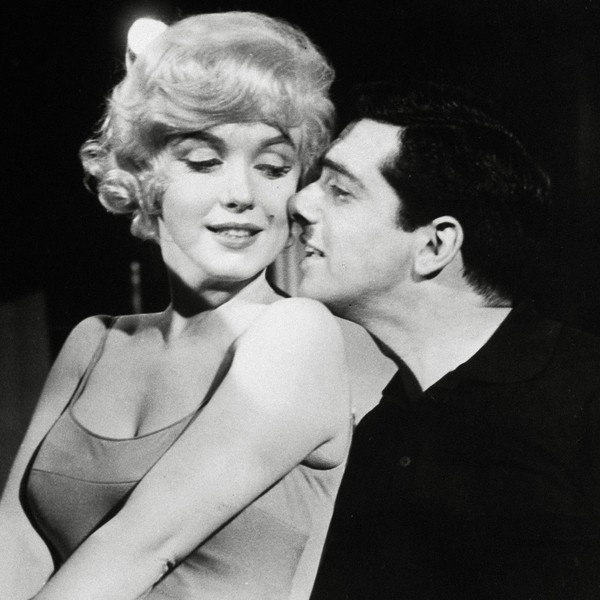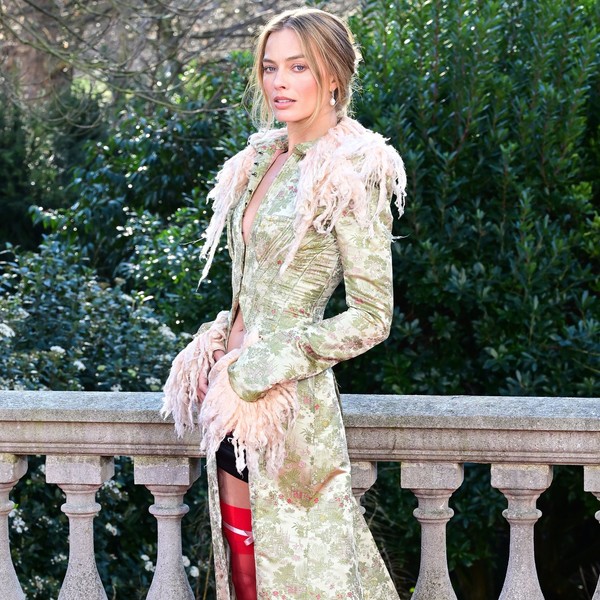A Night at the Country Line Dance
Americana through the lens of Yorkshire-born photographer Tim Marsella.

“I love a gas station,” Tim Marsella gushes over Zoom. An accomplished photographer, Marsella usually works for brands like Nike, Disney, and Armani. He was born in Yorkshire, UK, but has now officially been living in the U.S. for five years, and the consummate documentarian in him is loving it. “I moved to America, and the world all opened up,” he says. Here, everything is new to him. “I pull up to a gas station, there’s a story in it.” In contrast to glossy shoots for brands like Zara and Fanta, Marsella is here to talk about a very different photographic subject: country line dancing in Canton, Illinois.
Marsella has taken on “hundreds” of personal projects like this since moving to the United States. From car culture to skate parks, rodeos to rappers, he has kept himself busy photographing his favorite subject: “real people.” He tells a story about running into a teen in Nashville, Tennessee who asked him for tips on photography. “Yeah, sure,” Marsella told him. ”Just get 20 of your friends.” Marsella met up with the kid and his friends in a car park, showing him how to photograph and film as his friends messed around. Then, the whole crew went to McDonald’s to eat and drink sodas. Marsella kept shooting—and the result became a worldwide Coca-Cola campaign.

Tim Marsella
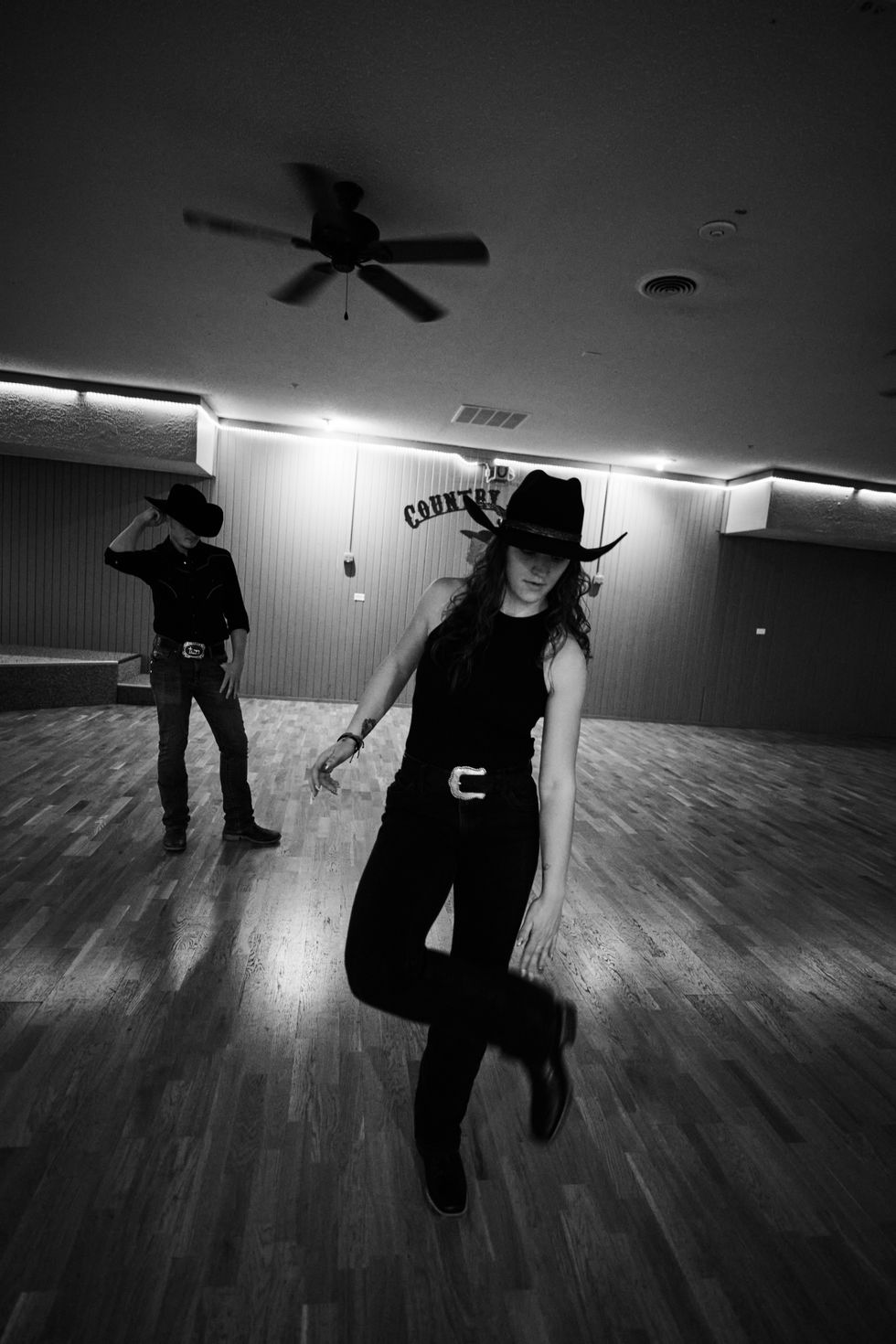
Tim Marsella
Driving through the Midwest regularly, Marsella has found a well of inspiration in Americana. “I find still lifes in these places really amazing,” he explains. “I photograph motels; I photograph signage, I like the buildings. Everything’s interesting. Everything’s graphic. Everything’s straight.” On visits to his partner’s hometown of Canton, he’s photographed everything from deer hunts to Christmas decorations to butcher shops. On one recent trip, he stopped for lunch and realized he was dining in a dance hall. That evening, he returned with his cameras and a backdrop and got to work.
He loves how willing the everyday Americans he meets are to be in front of a camera; looking at his line-dancing photos, it’s clear why this is a photographer’s dream. Once Marsella got over his English reserve to match American friendliness, he was never at a loss for photographic subjects. “If I see a guy with a big beard dressed as Elvis, I have no fear now of going up and saying, ‘Hey, can I photograph you?’ And he’ll say, ‘’Course you can. Where do you want me?’ They’re just proud. Very proud.” This combination of pride and openness is evident in Marsella’s pictures. While he laments the small turnout at Country Line Bar & Grill that night due to a prom (“I’m still trying to do a prom!”), the photos are striking.
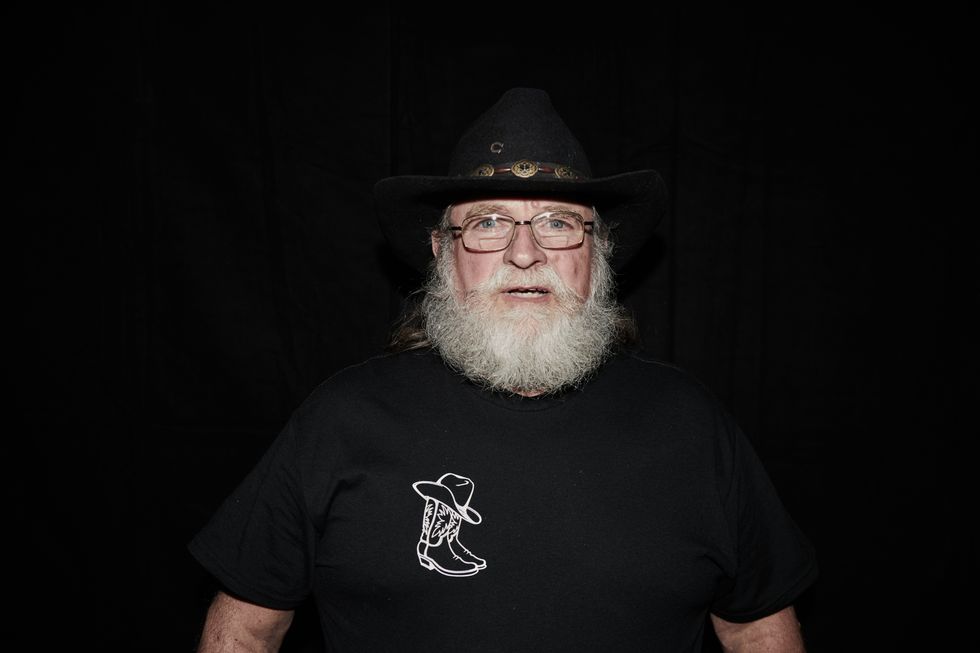
Tim Marsella
The images also made me appreciate what he was getting at with his love of photographing real people; the combination of poised humility and shy confidence is enchanting. Marsella describes his subjects’ reactions to hearing magazines were interested in the photos—“Wow, really? Us?”—but you wouldn’t guess this from the photos alone. The outfits are stunning, the subjects relaxed and happy, sometimes downright jaunty—and in their element, why wouldn’t they be? Marsella’s photos are a testament to the power of culture, something personal yet communal, mundane yet special, both comforting in its ease and intriguing in its uniqueness. The relaxed self-assuredness he encountered in Canton is immediately recognizable: it’s cultural pride.
When I ask Marsella about the draw of the dance hall, his answer is succinct: “Purely fashion.” He recalls telling friends in England how Americans do actually wear the plaid shirts, cowboy boots, and big belt buckles they see in the movies. Like most fashionistas, the dancers sacrifice foot comfort for sartorial excellence; many carry multiple pairs of cowboy boots in their car and swap them out to rotate their blister points. Marsella and I discuss how the country aesthetic is having a moment in the fashion mainstream, led by artists like Beyoncé and Pharrell—the latter of whom some dancers that night said they had never heard of.
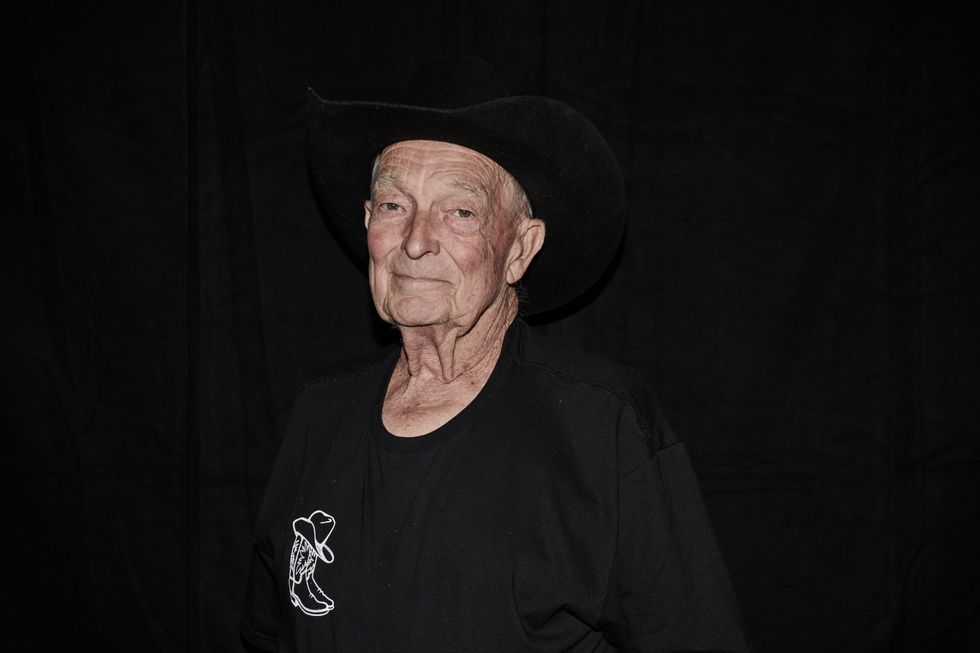
Country Line Bar & Grill owner Morey Denny
Tim Marsella
Marsella was particularly struck by the dancehall owner Morey Denny. Born in 1940, Denny has farmed all his life and worked as a certified welder for the Caterpillar Tractor Company (now Caterpillar Inc.) for 31 years. He started racing stock cars and in 1983, used land on one of the family farms to build a successful race track; it’s still in operation today. Lifelong fans of country music, Denny and his wife opened Country Line Bar and Grill four years ago; it’s since become a local destination for good food, good dancing, and family-friendly fun. As a Johnny Cash man, he dresses all in black. When asked if he likes operating a dance hall, Denny says, “Without a doubt, I do, as you meet so many nice people.” His portrait is undeniably compelling. “If I’d seen him on the street, I would have photographed him anyway,” Marsella says. For anyone ready to dismiss the country aesthetic as a mere fashion trend, Denny is a reminder that this “aesthetic” represents a real culture worth exploring.
Marsella has another somewhat delightful reason for loving photographing American culture: “It’s like I’m in a movie every day.” He describes his surprising reaction to getting pulled over by motorcycle cops: ”I couldn’t stop laughing. They had sunglasses on and walked over, just like in the movies. It was like CHiPs!” Marsella never fails to take the romanticized view of America: “I’m in Atlanta, it’s like a hip-hop video. I go to Canton, I’m in a Burt Reynolds film. I drive through Texas, I’m in a Western.” I tell him how refreshing it is to hear an Englishman describe America with such positivity, so different from the usual culture wars between Europe and the States. Marsella is surprised. “I think everyone aspires to America,” he muses. “You influence us. You're big characters.” I express my relief that not all of Europe writes us off as stereotypical dumb American tourists. “I don’t think we find you stupid,” Marsella assures me graciously. “You’re just annoying because you’re loud.” Fair. We discuss other tourist stereotypes, but Marsella isn’t into the catty dishing as much as reminiscing about all the wonderful people and amazing places he’s encountered over the years. “We’re all kind of amazing,” he concludes thoughtfully. Spoken like a true photographer.
Want more stories like this?
Willy Chavarria Takes Us Behind the Scenes of His First-Ever Met Gala
Louise Roe Has A Thing for Chairs
Mexico City's Unconventional Culinary Adventures


